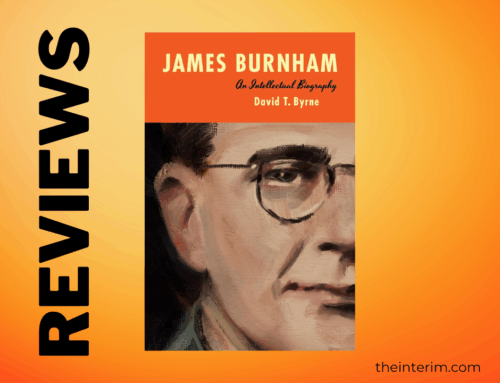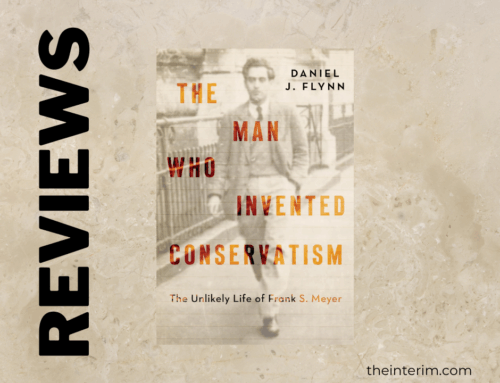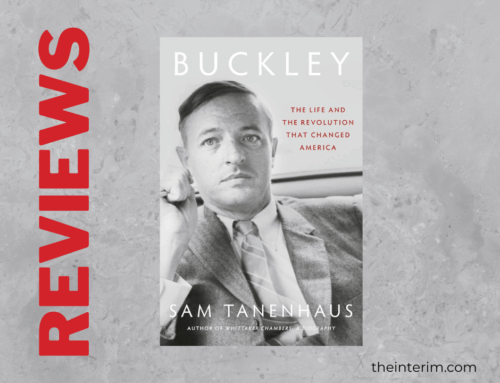
Michael Chong has tabled a private member’s bill that seeks to empower MPs and caucus at the expense of party leaders.
Conservative MP Michael Chong (Wellington—Halton Hills) introduced his private member’s bill, C-559, An Act to amend the Canada Elections Act and the Parliament of Canada Act (reforms), which would increase the power of MPs by taking power away from party leaders, a move that pro-lifers are cautiously optimistic about.
If passed, Chong’s bill would 1) allow 15 per cent of caucus members to trigger a leadership review at any time, and the leader would be removed if a majority of caucus voted by secret ballot to get rid of him; 2) end the power of a party leader to decide whether an MP can remain in caucus and give the power to expel and readmit members to the caucus as a whole; and 3) remove the party leader’s right to select candidates for federal elections and grant new powers to individual riding associations to oversee the selection of candidates.
Introducing the bill, popularly known as the Reform Act 2013, in the House on Dec. 3, Chong said “it would strengthen local control over party nominations. It would restore and strengthen the concept of confidence in House of Commons parliamentary party caucuses, and would reinforce the caucus as a decision-making body.”
Jim Hughes, national president of Campaign Life Coalition, told The Interim that he has mixed feelings about Chong’s proposal. He said there are positive aspects to the bill as it would “restore the power of MPs in a system that has become too centered on the leader,” and give “MPs the power to speak up for issues they care about without fear of reprisal from party leaders who might prevent them from running again.”
Hughes said the proposal helps correct the “shift of MPs being the government’s representative in their riding instead of being the constituents’ representative in Parliament.” Yet, he also sees a potential “flip side” if the Reform Act was passed because it could “hamstring a good leader in the future by giving caucus the power to turf a leader who promotes pro-life and pro-family agenda.”
Hughes explained that while giving more power to MPs is generally a good idea, he is concerned that the low threshold of just 15 per cent of caucus calling for a review could lead future pro-life party leaders to either placate minority views in their caucus or face constant revolt from socially liberal malcontents. Hughes said he likes that the reform could press party leaders to listen to their caucus, but called it a double-edged sword. “If you have a pro-abortion or cowardly leader, obviously we hope he would listen to the concerns of the pro-life element within their caucus,” said Hughes. “But if you have a pro-life leader, we don’t want him frightened of doing the right thing for fear of triggering a leadership review.”
Jeff Gunnarson, Toronto chair of Campaign Life Coalition, was more direct, telling Yahoo Canada News, “it would help us to get rid of a ‘pro-abort’ leader but on the flip side the same could be said for a pro-life leader.”
Hughes is also concerned about MPs overturning the collective decision of a party’s membership in electing leaders, saying that element of C-559 seems at odds with the democratic ideal the bill supposedly promotes.
Hughes said that eliminating the requirement of the leader’s signature for a candidate to run under the party banner locally is a move in the right direction because it will respect local democracy and should free MPs to speak up on matters of personal or constituent import. Hughes recalled Liberal leader Jean Chretien manipulating the nomination process prior to the 1993 federal election to deny several pro-lifers from becoming candidates, and in 2007, Conservative headquarters nixing a run by prominent British Columbia pro-lifer Heather Stilwell. Yet Hughes also warns that Chong’s bill, requiring a riding representative to sign off on any nomination, could give undo power to a party functionary at the local level.
In 2005, Ottawa pro-life activist John Pacheco sought to challenge socially liberal John Baird for the Conservative nomination in Ottawa West-Nepean, but was scuttled by party leader Stephen Harper. Pacheco, who runs the Socon or Bust blog, told LifeSiteNews.com that he supports C-559. “Since the political culture in Ottawa is firmly rooted in the culture of death,” Pacheco explained, “any structural change that lessens its grip and gives more influence and leverage to the pro-life movement and pro-life MPs is a good thing.”
Campaign Life Coalition has rated Chong “non-supportable” – he has voted pro-life or pro-family nine times, but also opposed M-510 to protect pregnant women from coerced abortion and the government’s 2006 motion to reopen debate on the definition of marriage, and he has publicly supported abortion up to 20 weeks gestation – but the media has reported that Chong’s bill could be used to elect pro-life candidates and advance pro-life legislation.
Paul Wells of Maclean’s worried that the bill could lead to pro-lifers or other “special-interest groups” organizing to takeover “riding associations (that) aren’t healthy,” as Liberals for Life did in the early 1990s.
Mitch Wolf, a policy and political analyst writing in the Huffington Post, said parties and their leaders need to have control over who runs under their brand as they may have interest in preventing controversial candidates that support the “restriction of abortion rights and gay rights” from running. He accused socially conservative MPs of thwarting Prime Minister Harper’s determination to avoid “hot-button issues.”
NDP leader Thomas Mulcair and Liberal leader Justin Trudeau have both indicated that they would allow a free vote on the private member’s bill. The Hill Times reported that the Conservatives have yet to decide whether they will permit a free vote. Brent Rathgeber (Edmonton-St. Albert), an independent MP who left the Tories last June when the Prime Minister’s Office attempted to change his private member’s bill on disclosing public service salaries, questioned if the Conservatives would allow a real free vote. He told the paper that, “there are free votes which are free votes and there are free votes, but there’s a whole lot of arm twisting and lobbying behind the scenes.”
Chong claims 40 members of the Conservative caucus have expressed support for his bill.
If passed, Chong’s bill would not come into effect until after the next general election.




